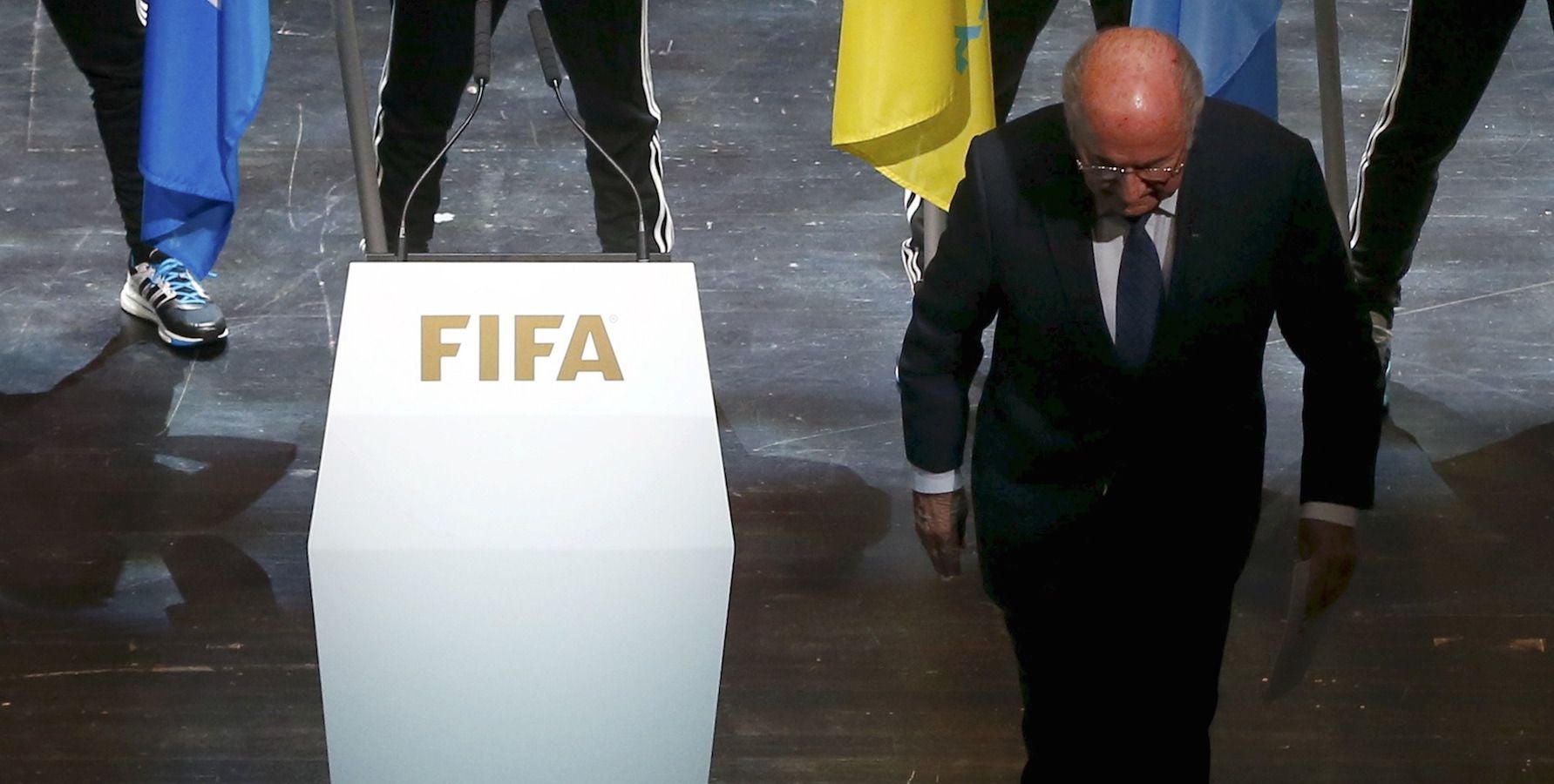Not just Sepp Blatter. We should get rid of FIFA, too
Now that Sepp Blatter has been re-elected for a fifth term as president of FIFA, even as the global soccer body is mired in a corruption scandal, what next? With huge support from the African and Asian federations, Blatter didn’t take kindly to calls from Europe (including heads of government) for him to step down. His lack of European support clearly riles him, but he’s dismissive of any threat of a boycott:


Now that Sepp Blatter has been re-elected for a fifth term as president of FIFA, even as the global soccer body is mired in a corruption scandal, what next? With huge support from the African and Asian federations, Blatter didn’t take kindly to calls from Europe (including heads of government) for him to step down. His lack of European support clearly riles him, but he’s dismissive of any threat of a boycott:
But must UEFA, Europe’s soccer governing body, stay in FIFA? A solution to the ongoing break between FIFA and Europe, the spiritual and economic home of soccer, and is for UEFA to simply go it alone. Yes, that would mean an end to the World Cup as we know it. This may sound like heresy but it really isn’t.
Indeed, a breakaway may be imminent in the world’s second-most popular sport: cricket. A group backed by an Indian conglomerate is planning an alternative global league, complete with a new governing body that would challenge the domain of the International Cricket Council.
Breakaways are also not uncommon in the world of sports. American football fans will shudder at the memory of wrestling impresario Vince McMahon’s attempts to create an alternative to the NFL in 2001. The US equestrian sports body threatened to ride off on its own 2011. In 2009, 10 teams in the motorsport of Formula One almost broke away before a deal was reached to preserve the empire of Bernie Ecclestone, the F1 mastermind who has faced corruption allegations himself.
How would a breakaway work in soccer? Essentially, UEFA or some other body would have to put on alternative World Cup, with anyone that wants to participate. The idea was mooted in 2011 because of—you guessed it—corruption allegations against key FIFA members.
If the South American countries were persuaded to join the alt-FIFA, then you would have all the best teams in the world, competing in a highly lucrative tournament, under a banner not smeared with dirt—one that sponsors would be happy to back, since finances are so important to any business. (And make no bones about it, soccer is big business.)
Any tournament held by the new body would have the moral high ground but also sporting supremacy—without Germany, Brazil, Spain, Argentina, and other top teams, FIFA’s World Cup would be devoid of many of the world’s best players.
Would the breakaway tournament suffer without the participation of Africa and Asia? Undoubtedly, on every level. There’s also the danger that soccer will go the way of boxing—multiple governing bodies, and multiple champions, with no single agency able to enforce its will on the participants.
But with FIFA’s reputation at its lowest ebb, now may be time for the Europeans to take a leading role, and to try something revolutionary off the pitch for the good of the game.